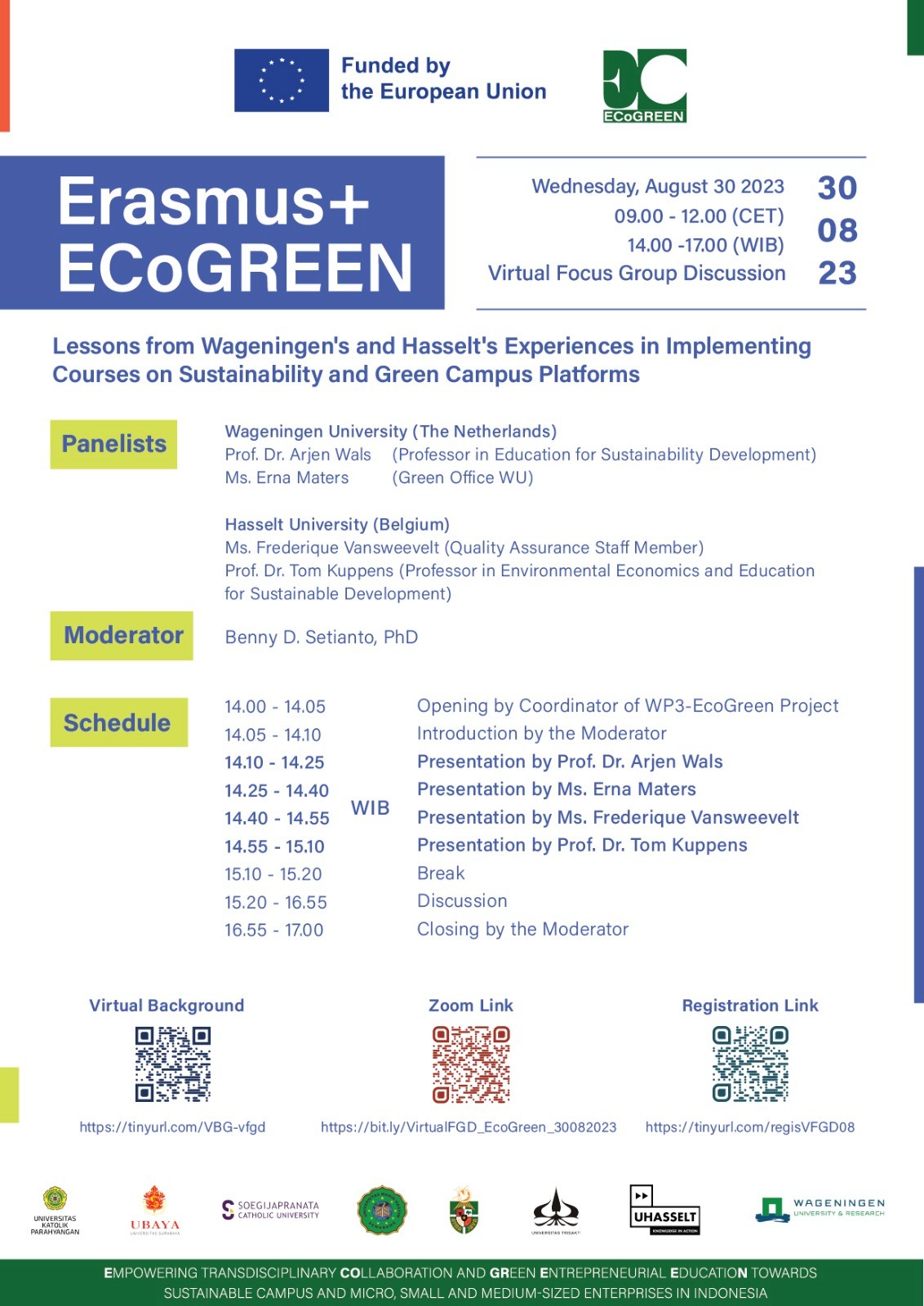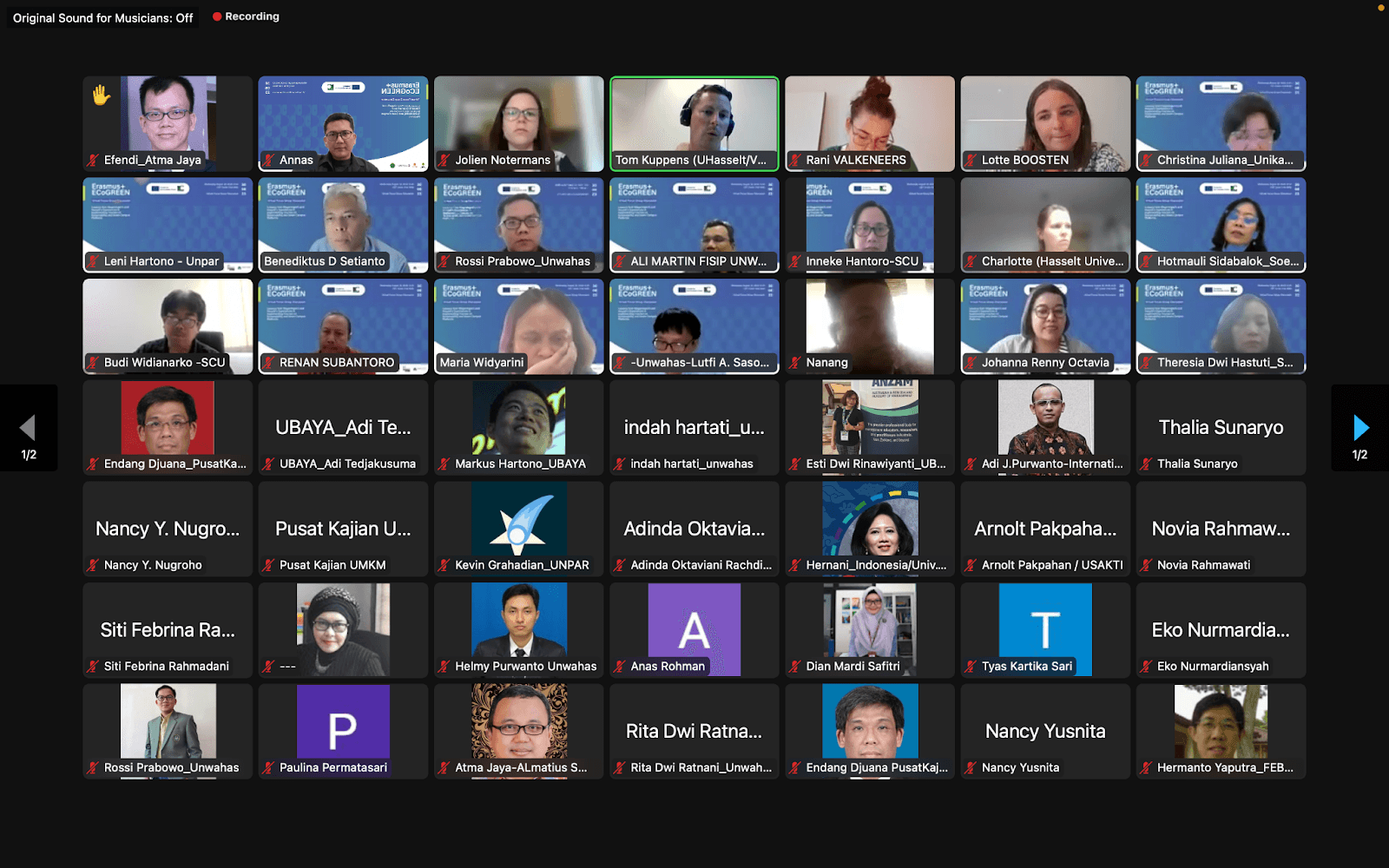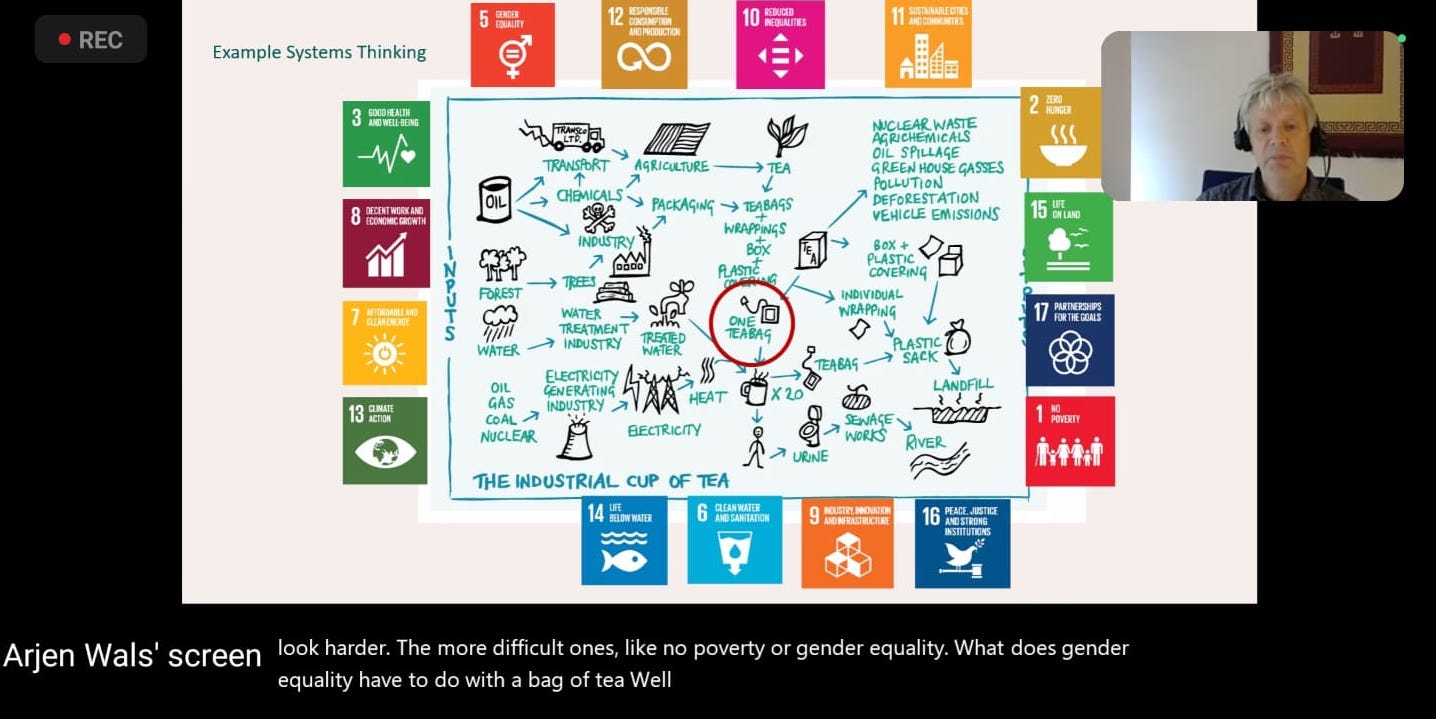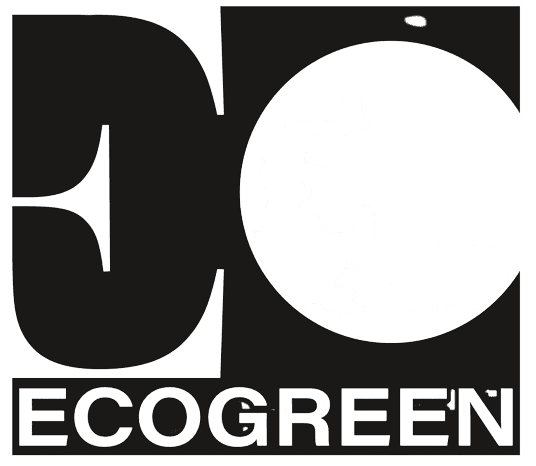Virtual Focus Group Discussion: Lessons from Wageningen’s and Hasselts’s
Aug 30, 2023
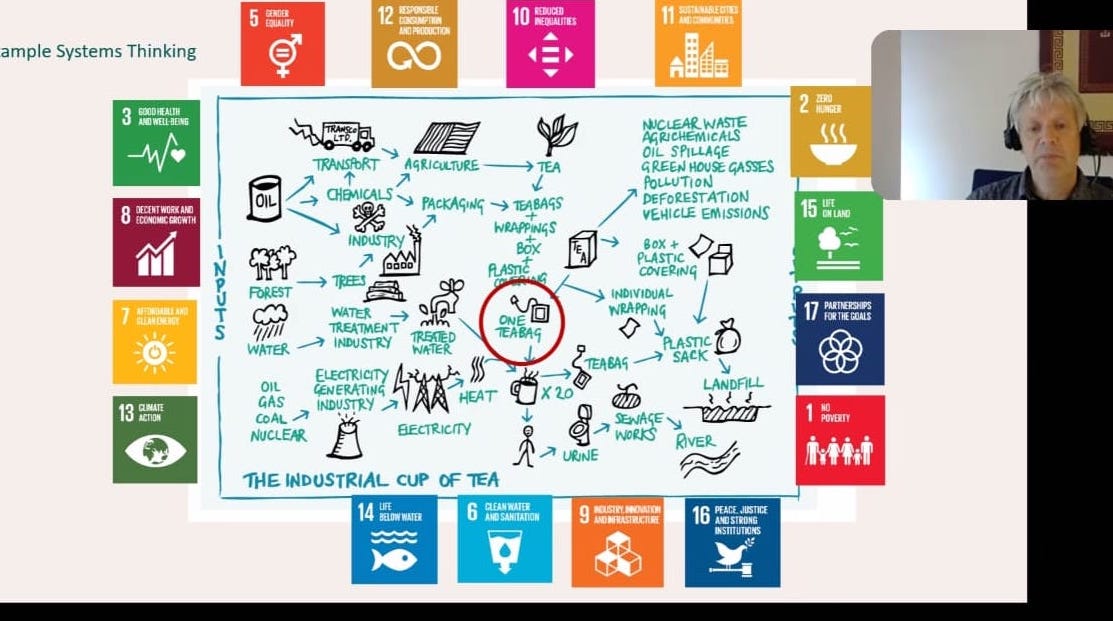
BACKGROUND
Many institutions, including higher education establishments worldwide, have embraced sustainability as one of their main priorities. Universities have not only implemented sustainability courses in their curricula but also embarked on a journey to understand and address the consequences of their activities and operations on the environment. In other words, these universities are proactively engaging in campus development initiatives that contribute to the creation of a sustainable society. Through education, research, and meaningful collaborations with the community, these universities are expected to play crucial roles in paving the way towards a greener and more sustainable future.
Among the 4,000 higher education institutions in Indonesia, only a limited number have actively pursued campus sustainability. Six Indonesian universities have participated in the Eco-Green project, initiating various sustainability-related activities in teaching, research, and community outreach on their campuses. However, some challenges persist in the implementation, particularly related to experience, personnel capacity, and resources. This project aims to establish a sustainable and green campus platform, fostering collaboration in education and research between Indonesian and European partner universities. Its primary focus is on addressing sustainability prospects and challenges in Indonesia.
In terms of designing and implementing sustainability courses and on-campus initiatives, the European partner institution in this project possesses greater experience compared to the Indonesian universities. The European Union has taken several initiatives that highlight the significance of education for sustainable development (ESD). Notably, the European Green Deal (2019) includes an ambitious package of measures aimed at guiding the EU towards a fair and prosperous society, characterized by a modern, resource- efficient, and competitive economy, decoupled from excessive resource use. A strong emphasis is placed on enhancing environmental awareness among young people through education and other forms of youth engagement, recognizing their potential as influential advocates for climate action, sustainable development, and environmental protection. Schools, training institutions, and universities are actively encouraged to collaborate with communities to achieve the necessary changes for a successful transition to a greener economy.
In 2020, the European Commission adopted the European Education Area, an initiative aimed at enabling Europeans of all ages to benefit from the EU's extensive education and training opportunities through increased investments and stronger cooperation among European Member States. The European Education Area is set to be achieved by 2025 and encompasses six dimensions, one of which is the green transition. The objective of this dimension is to enhance understanding of climate change and sustainability, promote the greening of education infrastructure in Europe, and foster greater connectivity among European education institutions.
One of the European Commission's latest endeavors to enhance education for the green transition is the introduction of GreenComp: the new European Competence Framework on sustainability for lifelong learning. This framework serves as a unified reference for understanding the essential components of sustainability as a competence. As a result, it can play a pivotal role in promoting learning for sustainability by assisting educational institutions in formulating, evaluating, and adjusting their approach to teaching and learning in this domain. GreenComp encompasses 12 sustainability competences, thoughtfully organized into four key areas, i.e.
Embodying sustainability values,
Embracing complexity in sustainability,
Envisioning sustainable futures and
Acting for sustainability.
The GreenComp framework can be used for all learners, irrespective of their age, educational level and in any educational settings.
Considering this background, it is now more imperative than ever for Indonesian universities to benchmark and draw lessons from European universities that have successfully implemented sustainability initiatives on their campuses. This urgency demands immediate collaborative action, with European institutions offering support to their Indonesian counterparts in adopting an integrated approach to incorporate sustainability education into their curricula.
The ECoGREEN project is a dedicated capacity-building initiative focused on integrating sustainability learning and green entrepreneurship into higher education in Indonesia. The primary objective is for universities in Indonesia to strengthen their capabilities in fostering sustainable university ecosystems, achieved through educational efforts and support for the entrepreneurship ecosystem, particularly local Micro, Small, and Medium Enterprises (MSMEs), to transition towards sustainable business practices by actively participating in green entrepreneurship education.
This Virtual Focus Group Discussion (V-FGD) session marks the initial step towards achieving the four specific objectives scheduled for ECoGREEN within three years:
By July 2025, develop and implement new and innovative courses that integrate sustainability learning and employ a trans-disciplinary approach across all Indonesian partner universities.
By January 2025, establish and organize inter-university co-curricular activities centered on sustainability and green entrepreneurial competences, involving all partner universities.
By July 2025, create a sustainable and green campus platform that fosters collaboration in education and research among all partner universities, collectively addressing sustainability challenges in Indonesia.
By January 2026, empower local micro, small, and medium-sized enterprises to embrace sustainable business practices and equip them with the capabilities to tackle sustainability challenges in Indonesia.
